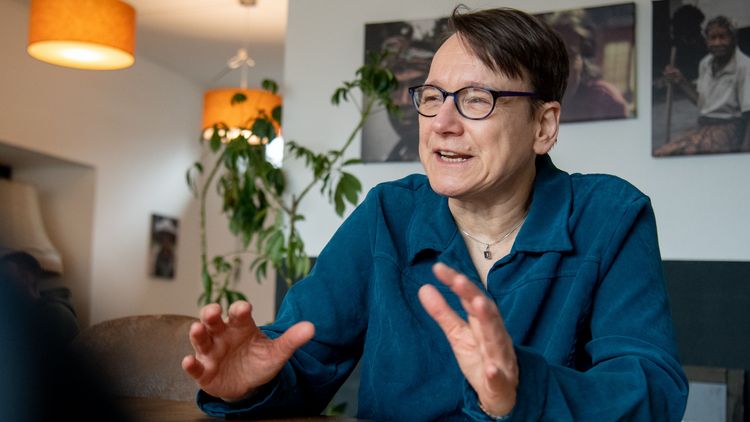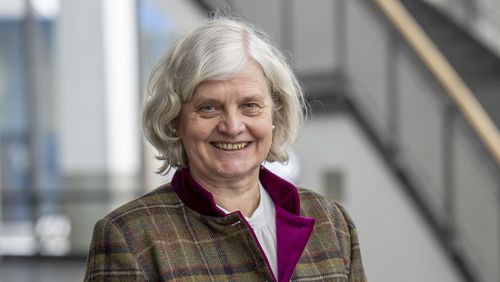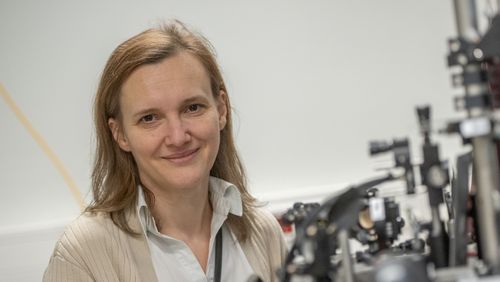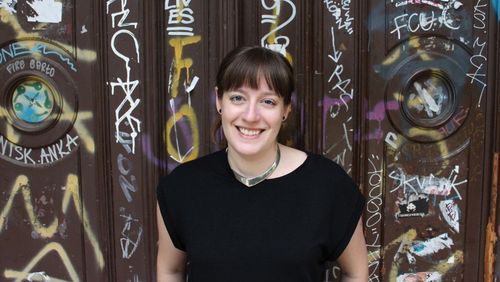Dilemma or win-win situation?
In her day-to-day research, Scheidler operates in an almost curious field of tension. As a computer scientist, on the one hand, she is interested in building secure encryption systems based on mathematical problems that are as complicated as possible. As a number theorist, on the other hand, she is looking for methods with which precisely these mathematical problems can be solved more easily. "It's a win-win situation. Either the number theorist is happy or the computer scientist is happy," says the Canadian by choice with a laugh. That could change as soon as quantum computers no longer exist only in theory but are used in reality. According to Scheidler, their expected computing capacity is likely to exceed anything that has ever existed before and present cryptography with completely new challenges. A development she is following with excitement.
That Scheidler chose cryptography as her research focus was more by chance than anything else. Above all, the freshly graduated mathematician had been looking for an opportunity to spend time abroad after her studies. A colleague who was a friend of her former thesis supervisor put her in touch with a scientist in Canada. Scheidler was fascinated by his cryptography lectures. "Of course," she says, "the subject fascinates a lot of people because it has a bit of James Bond about it." It took her three attempts to convince her doctoral supervisor that encryption methods would be her doctoral topic.
Commitment to young female scientists
As an established number theorist and cryptographer, she now supports young female colleagues who are at the beginning of this path. In Canada, she helped establish the "Women in numbers" network, which not only regularly organises the conference of the same name, but has also become a model for similar initiatives all over the world. This summer, for example, the fourth conference of European women number theorists will take place in Utrecht, the Netherlands.
The network wants to reach young women who are at the end of their university education or at the beginning of their scientific career and help them to gain a foothold in academia. The conferences offer an environment that is not about gender issues, but about the matter at hand, number theory.
Scheidler was nominated for the Helene Lange Visiting Professorship by Oldenburg mathematician Prof. Dr Andreas Stein and his colleague Prof. Dr Anne Frühbis-Krüger. Frühbis-Krüger, a mathematician, has often been involved in equal opportunities topics herself in the past, and was also active at the University of Hanover as a decentralised equal opportunities officer. She was one of the initiators of the Helene Lange Visiting Professor Programme. Stein and Scheidler have known each other for many years and have conducted research together on several occasions. In the summer semester, the visiting scientist will offer courses in Oldenburg, but during her stay she also wants to support young female researchers in her field - among other things in the Graduate Academy's mentoring programme, which also bears the name of the Oldenburg-born politician, educator and women's rights activist Helene Lange.
Anyone who hears Renate Scheidler talk about mathematics can well imagine that she infects young female colleagues with her enthusiasm for her subject - and ensures that mathematics does not remain one thing: just a phase.




